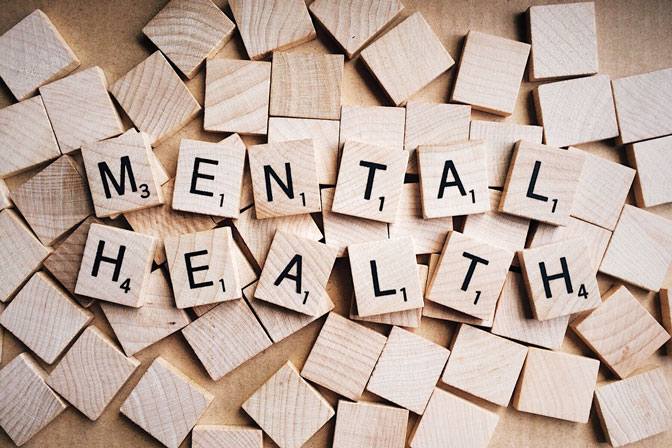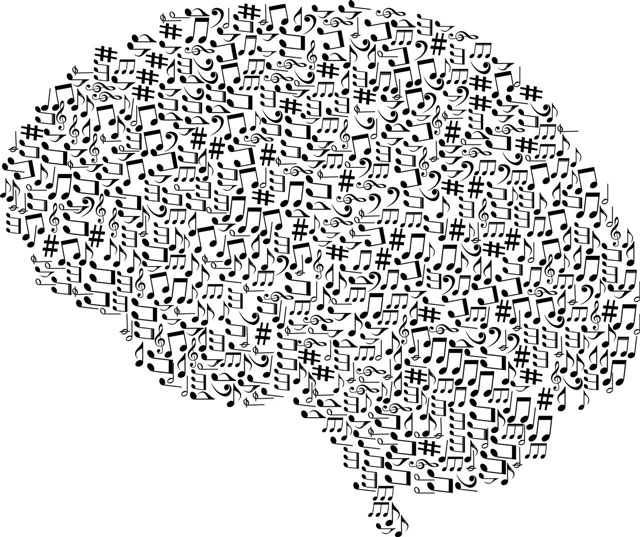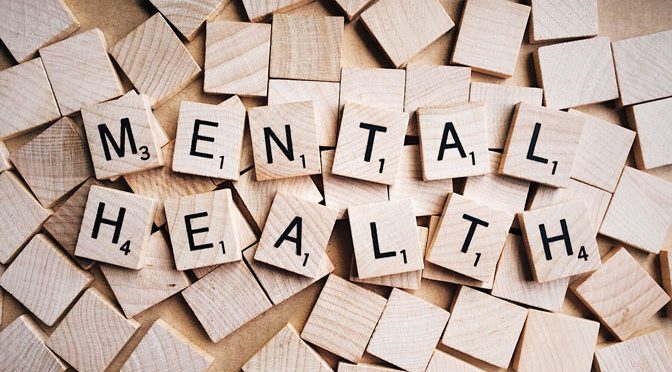by Roz Bruce, Guest Contributor
When you’re a musician, be it in a rock band, jazz ensemble, or a classical orchestra, it’s likely you have a schedule that’s tough on your body and your mind. Even if you’re not a full-time musician, those late nights and the fast-food meals can take their toll.

For many people, listening to music or playing an instrument is a way of dealing with problems and can help improve mental health. However, many musicians struggle with mental illness, which in some cases ends in tragedy.
As a songwriter and musician, I know how easy it can be to let your health slip when you’re gigging, touring, or even just heavily involved in a creative process. I remember, in the early days of my songwriting, sacrificing sleep, food, and relationships as I allowed myself to be possessed by the creative process that would end up taking its toll on my mental well-being as I suffered depression and anxiety. Later albums, which I recorded more healthily, were undoubtedly better as well as more enjoyable to create.
It’s so important to look after your mental health as a musician; it’s what helps you create, interpret, play, and enjoy music. Here is some advice for how you can help to take care of yourself both at home and on the road.
Take Some Time for You
This one is the hardest to stick to for musicians. You rehearse, prepare, play, get home tired, sleep in the next day, or go to work and repeat. It can be so exhausting and draining. You need to remember that music is a gift and you’ll burn out if you only ever give, give, give.
Take some time to do things that have no purpose other than for yourself. Read a book, have a bath, do whatever you enjoy, but do it just for you. This is an essential aspect of mental wellness. Two books that I have found particularly enjoyable and helpful are Destination Happiness: 12 Simple Principles That Will Change Your Life, by Mark Reklau, and The Little Book of Self Care, by Mel Noakes.
Take some time for yourself, by yourself. You’ll thank yourself.
Don’t Compare Yourself to Others
This really is a psychological one. Performing makes you sensitive. Yes, even you, tough guy. After you’ve performed, you’re much more likely to see the potential negatives in anything anyone says to you. Didn’t they like the songs? They hate us. Or if nobody says anything, oh my gosh! The worst. They were all embarrassed. They thought we were awful.

Then the next band goes on, and everyone is cheering *because they know them*… and you’re thinking, “Nobody did that for us … we must have been terrible.”
When reflecting on your performance, reflect on your performance. What did you do well? What could have gone better? How? Comparing yourself to other bands or performers will never lead you to anything helpful or insightful.
Eat and Drink
It sounds so obvious, but this is a big one. We need to eat to stay alive, right? But when you have to be at a venue at 4:30 p.m., sound check at 6 p.m., play at 8:30 p.m., leave the gig at 11 p.m., where’s the time for food? It’s really worth taking some food with you to a gig. Look after your body and your mind will flourish. Just get past the uncool-ness of it and prepare a packed lunch. Alternatively, try getting a healthy meal at least some of the time, rather than burgers every time you’re gigging. It’s so much better for your mood.
It’s also easy to forget to hydrate yourself when you’re out and about. Performing takes a lot of energy, and it’s not unusual to sweat when you’re on stage. This makes you more dehydrated. Make sure to keep water flowing. It hydrates your brain as well as your body, and you’ll find your mood improving as a result. Best of all, water is free.
Reach Out
If you do find yourself struggling, don’t forget that help is out there. The worst thing you can do is to keep stuff bottled up inside. Try speaking to someone close to you and getting that fear, anxiety, anger, or whatever off your chest. If you don’t have health insurance, you can get free help and look for mental health resources online. For example, the SIMS Foundation in Texas helps to provide musicians with mental health resources, as does the New Orleans Musicians’ Clinic. In Canada, the Canadian Mental Health Association has a presence in more than 330 communities across every province and one territory. You should also save your state’s mental health crisis line, just in case you need it.
Roz Bruce is a professional musician, songwriter, and teacher based in Nottingham, UK. She has personal experience with depression and anxiety and has a commitment to helping others in mental distress. www.guitaristroz.com.


